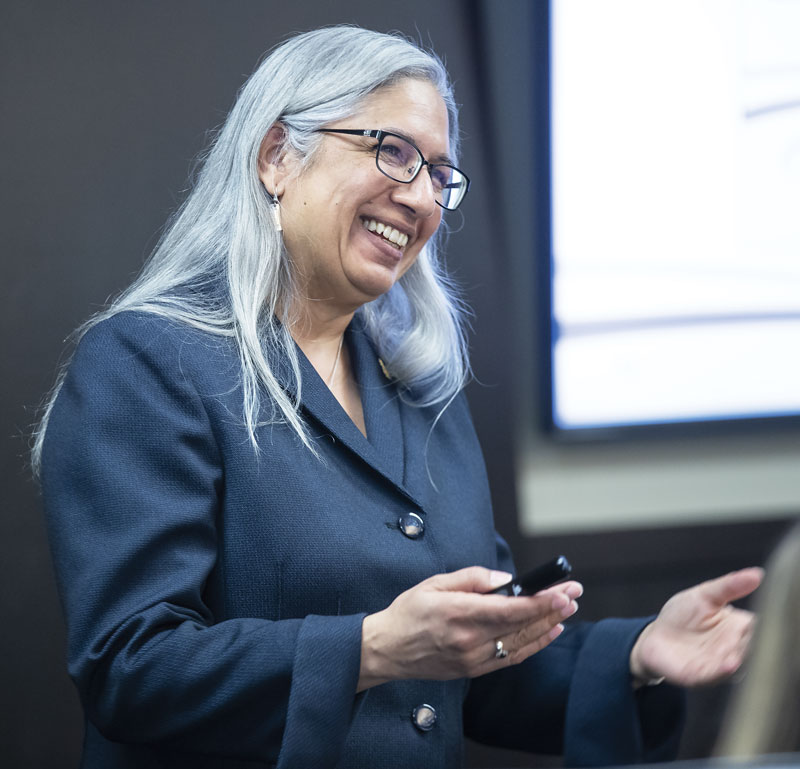
Veterans Affairs Canada is missing the boat in its efforts to clear up a huge case backlog, says Veterans Ombudsperson Nishika Jardine, who told the Veterans Consultation Assembly that the department must prioritize files by need, not their place in line.
Serving veterans, she said, have access to “probably the best health-care system in this country.” But many are left high and dry once they leave the Forces.
“The day you walk out the door with your little baggie of three-months’ worth of whatever medications you are on and no family doctor, you don’t have access to health care,” Jardine told the group at a meeting hosted by The Royal Canadian Legion. She was one of three presenters at the April 23 session, which was attended by representatives from 17 additional Canadian veterans’ organizations.
“If you’re lucky and you do have a family doctor, you may get your medications renewed. You may be able to apply for the public service health-care plan, the pensioners’ dental-service plan. But that’s only if you’re in receipt of a pension.
“What about all the veterans who release from the CAF and don’t have those things—they don’t have a pension, a health-care plan or access to a doctor? Those are the people I’m concerned about.”
Applications to VAC for monthly pension increases and lump-sum payments don’t concern her, she said. Disability awards, however, open doors and bridge gaps until vets can secure health care or get another job with benefits.
She said the question that needs to be asked of VAC is how many of the backlogged claims are from veterans who do not have access to health care.
“They can’t tell us that because they don’t triage.”
Veterans Affairs Minister Lawrence MacAulay reported in February that officials expected benefit applications to number 36,600 by the end of 2022, 10,000 more than projected. The current wait time is about two years.
The department hired 560 temporary staff to address the backlog, but only kept 168 of them past March.
A retired colonel appointed in 2020, Jardine said that if advocates don’t ask the right questions, then those in need fall through the cracks. VAC progress reports, she noted, focus on numbers and wait times.
“Every single one of those deserves to be resolved within the service standard timeframe—I’m not questioning that,” she said.
But Jardine said the “granularity” about where the real problem lies is in whether the claimants at the head of the queue are still-serving members or retired veterans without a pension, a health-care plan or a family doctor.
Said Jardine: “My frustration with the VAC review process…85-90 per cent of the time they do not find in favour of the argument presented by the client; they just reiterate what the department has done.
“To me, this is just enormously frustrating. It stuns me.”
Advertisement





















